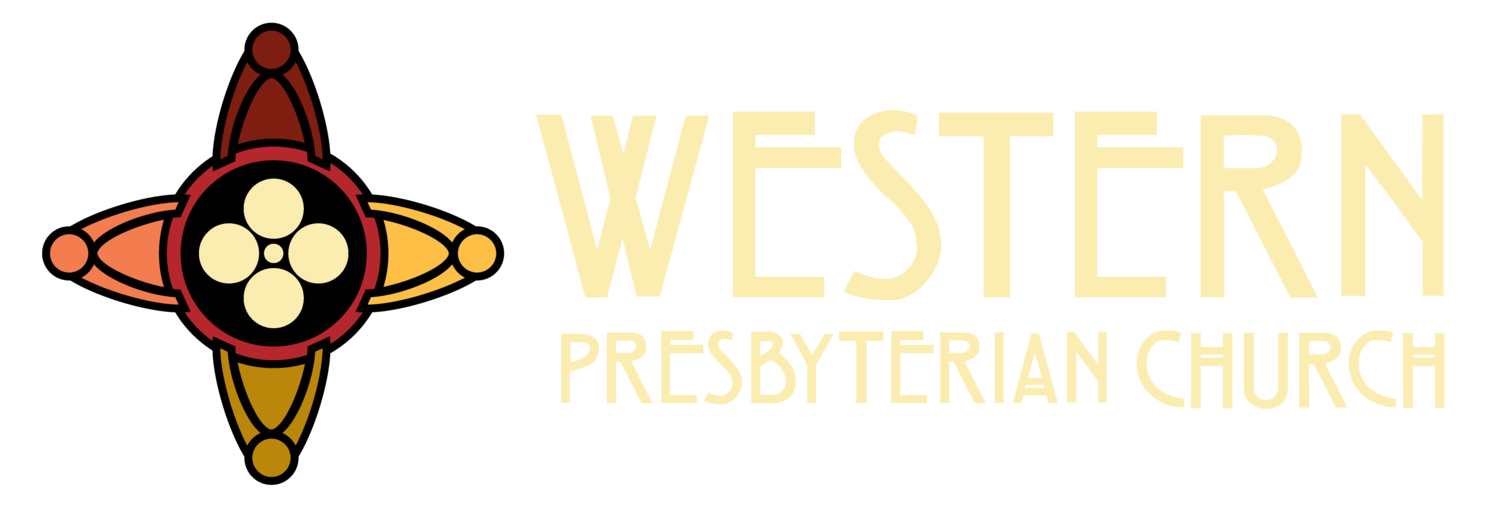A Word from Laura: After George Floyd
Dear Western Church Family,

In response to the murder of George Floyd, but before the militarized responses to peaceful protests in the District, before President Trump committed yet another outrage of holding a bible in his hand for a church photo op, I wanted to write you.
I wanted to talk about Sunday’s worship service – not so much the planned part, but the unplanned part: an African-American member respectfully sharing that the trauma was too much during Allan’s singing “I Can’t Breathe”, the holy silence during Joys and Concerns and following the congregational meeting, as well as the response of some of you to the Pentecost prophecy scripture. One of you shared that it didn’t give you more hope, but showed how much further we all have to go.
In a recent public letter, Rev. Kelly Brown Douglas, canon at the National Cathedral and dean of the Episcopal Divinity School in New York City, hearkening to Dr. King’s call on our nation for soul searching after the death of President Kennedy, calls on our nation to search for its very soul once again. This is also a time for our church to do some soul-searching.
Many of us have known for a while that we at Western have significant work to do when it comes to how we live into an intentionally anti-racist identity. At different points, different words get used: intercultural, multicultural, diverse. Different members have different ideas about what we mean by that, and to a certain extent, we need to celebrate that diversity of outlook and opinion. As members of Western, we have been on different journeys; this soul-searching time will ask new things of us who have identified as white, whether or not we’ve ever been conscious of the reality of whiteness and how it privileges some over others. We who identify as white will need to be aware of how our soul searching impacts our siblings in the Western family who identify as people of color. We will need to find new ways of relating to each other, sharing our stories and experiences in truth and love, relying on God’s grace.
This work is so important – to our church and to people of faith everywhere – and it’s work that I know I need to do, too.
To our members, friends and staff who identify as African-American, black, bi- or multi-racial, or differently as people of color, I recognize that your reality may have added layers of stress or trauma to the already stressful time of this pandemic. In this time when our church cannot gather physically, I still want the church to “be church” for you. I value what you bring to our faith community, and I am committed to doing what I can to help us take the next step for Western.
To all who are feeling anger, frustration, resentment, discouragement, or some form of outrage, I hope we’ll stand together as a church. Scripture calls us to weep with those who weep; we weep together as a church. Your feelings are real and holy, as well as exhausting and draining. As your pastor, I encourage you to be kind to yourselves and to practice the self-care required of each of us in this time.
To all who wonder with me how we might better represent God’s dream of a beloved community, how we might find our unity in a community of faith that does not always see eye to eye on issues, I invite your prayer in a process of discerning what is the next step for Western.
What is our next step? This is complicated work in a busy, over-committed, physically distant faith community. I envision a process that invites wide participation and uses appropriate resources to clarify where God is leading our church. We will also need to thoughtful and clear about our various responsibilities and roles: the roles of the session and deacons, my role as pastor, the anti-racism group, and our ministry teams, as well as potential new groups in the congregation. It may mean that other priorities get put on the shelf a while longer. This process will be on-going, long after we’re all gone and find ourselves together once again at God’s heavenly table.
This next step will also require a what I call a shared spirituality – a common understanding of the practices that will ground us and shape us as we ask who God is calling us to be and how we get there together. We will need to find new ways to relate to each other as a community, to listen to each other – not just ideas, but stories and experiences, to pray – not just with words, but with our hearts, and to discover our identities in a God who calls all of us to be transformed. I hope that you will be part of worship on Sunday, when I will share where I see God leading, and as we reconnect with our shared Spirit through our communion together.
In the meantime, know that each of you, as well as the soul-searching required of our nation and church, remain significant in my ministry and my own life. In this time when hope seems hard to come by, your desire to be a courageous community for the sake of God’s love and justice continues to give me great hope. As we look to a future where hope for our nation seems harder to come by, I want the faith you experience at Western to remain a source of hope for you.
In the words of the hymn, may God continue to grant us wisdom, grant us courage for the living of these days,
Laura
